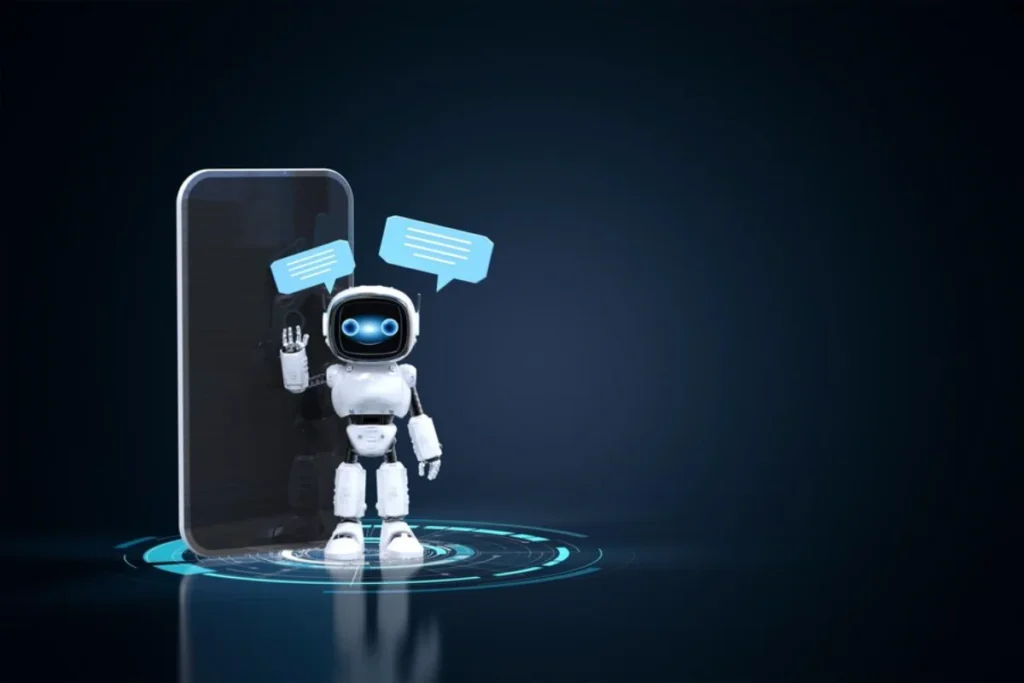The E-commerce Blog

Implementing AI Chatbots to Improve Customer Support
The Role of AI in Customer Service
Customer service is key for any business. It affects customer satisfaction, brand loyalty, and overall success. As businesses scale, maintaining high-quality customer support becomes increasingly challenging. AI chatbots are changing customer service. They boost efficiency in many industries, especially in retail.
AI chatbots change how customers interact. They offer quick answers, are available all day, and provide tailored help. AI chatbots help with simple questions and tough problems. They cut response times and boost customer engagement. This article looks at how businesses can use AI chatbots to improve customer support. It discusses key benefits and best practices for successful integration.
How AI Chatbots Enhance Customer Support

1. 24/7 Availability and Instant Responses
One of the major advantages of AI chatbots is their ability to provide round-the-clock customer support. Chatbots are always on duty. Unlike human agents, they don’t need breaks. This means customers get quick help anytime, no matter the time zone or busy hours.
Key Benefits:
- Reduced waiting times for customers.
- Improved efficiency by handling multiple queries simultaneously.
- Enhanced customer satisfaction, leading to higher retention rates.
Example: Retail giants like H&M and ASOS use AI chatbots. These bots help customers track orders, find products, and handle returns. This makes shopping easier and better for everyone.
2. Handling High Volumes of Queries Efficiently
AI chatbots can handle thousands of customer interactions simultaneously. This makes them vital for businesses that receive many customer queries.
How This Works:
- Natural Language Processing (NLP) enables chatbots to understand and respond to complex queries.
- Machine Learning (ML) algorithms allow chatbots to get better at responses. They learn from past interactions to improve over time.
- Predefined workflows allow chatbots to handle repetitive questions. This frees up human agents for more complex tasks.
Example: E-commerce companies use chatbots to handle common questions. These include shipping policies, return processes, and product availability. This helps lighten the load for human support teams.
3. Personalisation and Customer Engagement
Modern AI chatbots go beyond scripted responses. They leverage customer data to provide tailored recommendations and personalised interactions.
Personalisation Features:
- Recognising returning customers and retrieving past conversations.
- Recommending products based on browsing history.
- Addressing customers by name and understanding their preferences.
Example: Sephora’s chatbot gives personalised beauty product suggestions. It looks at what customers bought before and their skincare issues. This makes shopping more interactive.
4. Seamless Integration with Live Agents
While chatbots can handle a vast number of inquiries, certain issues still require human intervention. The best AI chatbot implementations integrate seamlessly with live agents. This ensures customers can escalate queries when necessary.
Key Features:
- Automatic escalation to human agents when a chatbot cannot resolve an issue.
- Live chat integration, allowing agents to review chatbot interactions before taking over.
- Omnichannel support, enabling a smooth transition between chatbot, email, and phone support.
Example: Zappos, an online retailer, uses AI chatbots to answer basic customer questions. If a case is too complex, it is smoothly handed over to human agents.
Benefits of AI Chatbots in Customer Service
1. Cost Savings and Operational Efficiency
Implementing AI chatbots can significantly reduce customer service costs while improving operational efficiency.
Financial Benefits:
- Reduces the need for large customer support teams.
- Lowers call centre costs by automating common queries.
- Minimises human errors, leading to more efficient resolutions.
Statistics:
- According to Juniper Research, AI chatbots are projected to save businesses $8 billion annually by 2025.
- Chatbots can reduce customer service costs by up to 30% while maintaining service quality.

2. Improved Customer Experience
AI chatbots offer quick, precise, and tailored answers. This enhances the customer experience and builds brand loyalty and trust.
Customer Experience Enhancements:
- Instant assistance without long wait times.
- Conversational AI makes interactions feel more human-like.
- Multilingual support, accommodating a diverse customer base.
3. Scalability for Growing Businesses
AI chatbots help businesses grow their customer support. They do this without needing to hire more staff. This is particularly beneficial for:
- Start-ups and SMEs looking to offer efficient customer service without large investments.
- E-commerce businesses experiencing seasonal spikes in customer inquiries.
- Global brands that require consistent service across multiple markets.
Example: Amazon’s Alexa-powered customer support chatbots handle millions of interactions daily. This step helps the company manage its vast customer base efficiently.
4. Data Collection and Customer Insights
AI chatbots gather important customer data. They offer customer insights into buying habits, common issues, and overall satisfaction.
Key Metrics Chatbots Track:
- Frequently asked questions to improve knowledge bases.
- Customer sentiment analysis for better service improvement.
- Purchase history and preferences to enhance personalisation.
Example: Nike’s AI chatbot looks at customer chats. It uses this info to improve product suggestions and marketing plans.
Best Practices for Implementing AI Chatbots
1. Choosing the Right AI Chatbot Platform
Selecting the appropriate chatbot platform is crucial for success. Businesses should evaluate options based on the following:
- Customisation capabilities to align with brand voice.
- Integration with existing CRM and support tools.
- NLP and AI sophistication for human-like interactions.
Recommended AI Chatbot Platforms:
- IBM Watson Assistant (for enterprise-level AI capabilities).
- LivePerson (for seamless chatbot-human agent collaboration).
- Chatfuel (for e-commerce and social media chatbots).
2. Designing a Conversational and User-Friendly Experience
For an AI chatbot to be effective, it must provide a natural and intuitive conversational experience.
Best Practices:
- Use a friendly yet professional tone to enhance engagement.
- Implement clear prompts and call-to-action buttons.
- Offer multi-channel support across websites, mobile apps, and social media.
3. Regularly Updating and Training Chatbots
AI chatbots require continuous improvement to remain effective. Businesses should:
- Train chatbots using real customer interactions.
- Continuously update FAQs and predefined responses.
- Monitor performance metrics to refine chatbot functionality.
4. Balancing Automation with Human Touch
While automation enhances efficiency, a human element remains essential in customer service. Businesses should ensure that:
- Chatbots can seamlessly hand over queries to human agents.
- Customers always have an option to speak with a real person.
- Live agents monitor chatbot interactions to refine responses over time.
The Future of AI Chatbots in Customer Service
1. Advancements in Conversational AI
Future AI chatbots will become more advanced with the integration of:
- Sentiment analysis allows chatbots to detect customer emotions.
- Voice-based AI enables seamless interactions through smart assistants.
- Predictive analytics helps businesses anticipate customer needs.
2. AI Chatbots in the Metaverse
As businesses explore virtual spaces, AI chatbots will play a key role in:
- Assisting customers in virtual stores.
- Providing real-time support in digital environments.
- Enhancing immersive shopping experiences with AR/VR integrations.
3. Ethical Considerations and Data Privacy
Since AI chatbots manage sensitive customer data, businesses should focus on ethical AI and data security. This includes:
- Transparency in data collection and usage.
- Compliance with GDPR and other privacy regulations.
- Implementing robust security measures to protect customer information.
The Future of AI-Driven Customer Support
AI chatbots are revolutionising customer service automation. They are enabling businesses to deliver fast, personalised, and cost-effective support. By implementing AI chatbots, companies can:
- Enhance customer experience through instant and personalised responses.
- Reduce operational costs while scaling efficiently.
- Gain valuable customer insights to refine marketing and service strategies.
- Seamlessly integrate automation with human agents for optimal support.
AI technology is evolving fast. Businesses using AI for customer support will stay ahead of the competition. This approach helps ensure long-term success in the digital age.









